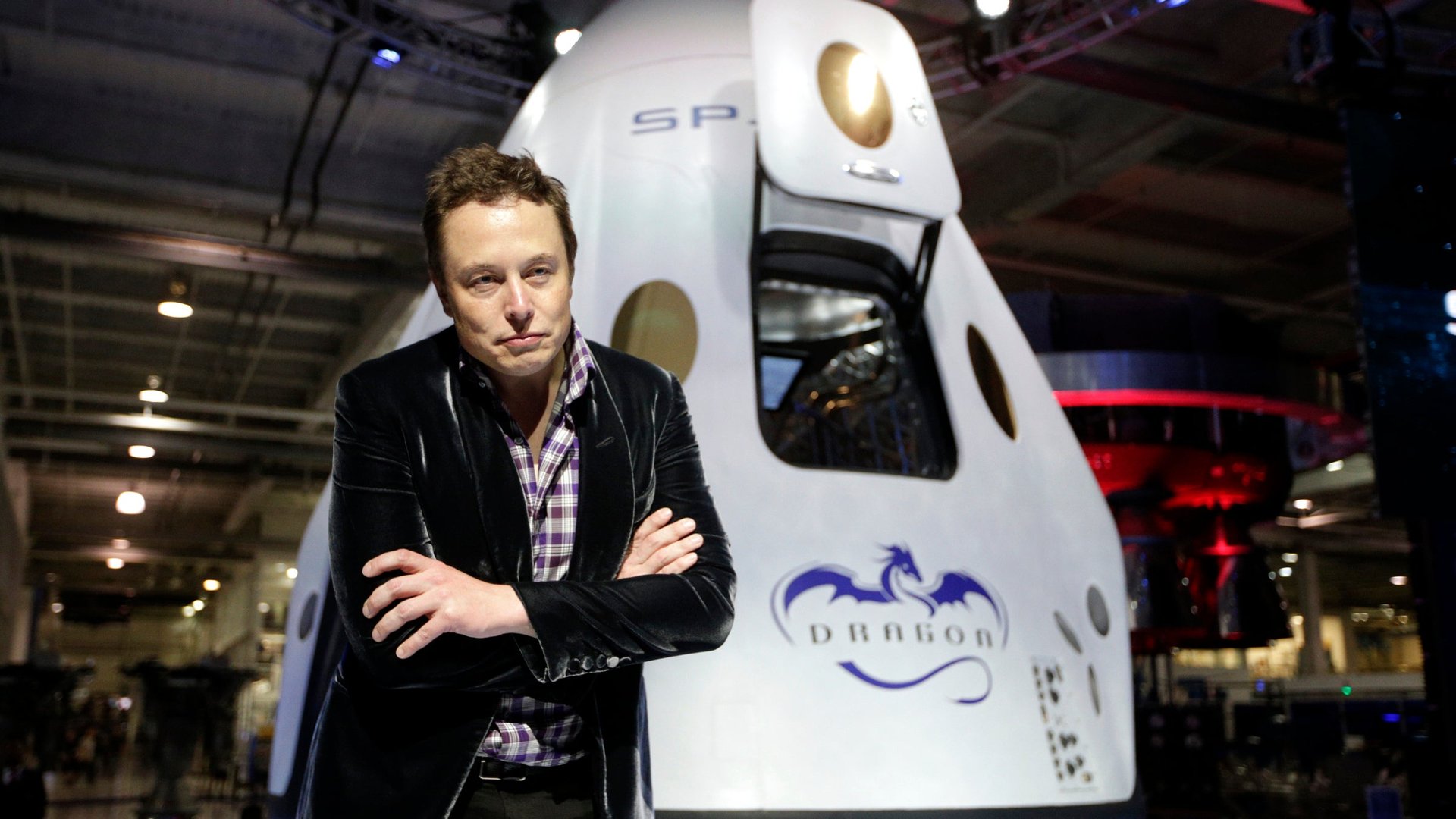SpaceX will soon be the third most valuable private tech company in the United States
Elon Musk’s bet on the future of space transportation is set to be the third-biggest private tech company in the US, behind only Uber and Airbnb, and worth more than $27 billion.


Elon Musk’s bet on the future of space transportation is set to be the third-biggest private tech company in the US, behind only Uber and Airbnb, and worth more than $27 billion.
SpaceX filed paperwork in Delaware to raise an additional $500 million in capital, according to Equidate, a stock market for private technology companies that tracks such filings. Once the fundraising round is completed, the company’s value will have increased by approximately 25% in the last nine months, according to Equidate COO Hari Raghavan. It has more than doubled since 2015.
It’s not clear yet which investors will provide the cash, but the company has preferred to retain old investors than add new ones. Fidelity is rumored to be leading the round, and Musk is supposedly set to put up more equity in the company he founded out of his own pocket in 2002.
SpaceX confirmed the fundraising round, but did not share any details about how the capital will be used.
But there are two obvious candidates: One is the sprawling space communications network envisioned by the company, which launched two test satellites earlier this year. Manufacturing thousands of satellites will require investment in a dedicated production facility. SpaceX is also current developing a new factory to produce its next rocket, known as BFR for “Big Falcon Rocket,” among other things. That build-out, too, could demand a capital boost.
Currently, SpaceX’s reusable Falcon 9 orbital rocket is the company’s most important product, delivering a billion dollars of revenue or more each year to SpaceX and supporting its next-generation business plan. Thanks to NASA’s support of SpaceX in a public-private partnership to develop vehicles to reach the International Space Station, the company was able to develop the Falcon 9 and the Dragon spacecraft while only raising $1.7 billion in private equity.
But it still took eight years for SpaceX to develop the technology, and the company only ramped up commercial operations following the first satellite launch on the Falcon 9 in 2013, epitomizing the risk carried by Musk’s early investment. Since then, its low-cost rocket has come to dominate the launch vehicle market, driving down the cost of space access and inspiring a flood of venture investment into space firms.
SpaceX’s next launch is expected on April 16, when it will put a NASA telescope that hunts for distant planets into orbit.